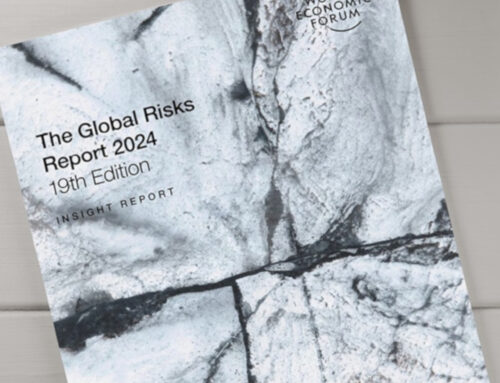

Investments of International Companies Are a Lynchpin of the American Economy
Share this
You, more than most, probably understand the importance of cross-border connections. Yet too many of my friends – and even some family members – are skeptical about globalization to being a four-letter word. And while calculating the benefits of imports and exports can be complicated, there is another facet to the global economy that is simple arithmetic:
When international companies invest and create jobs in the United States, American workers and communities benefit.
As the United States works to steady its economic footing in the wake of the COVID-19 global pandemic, supply chain disruptions and ongoing inflationary pressure, a bright spot is the robust inflow of foreign direct investment into the United States (FDIUS) and the outsized role that it plays in the resilience of the American economy.
Foreign direct investment is a term economists use to describe when a company invests in an operation outside of their home market. Unlike portfolio investments in a stock market, these investments come with a decades’ long commitment to the communities and employees where these companies invest.
According to the most recent figures available, international companies have invested $5 trillion into their U.S. operations, which represents an impressive 40 percent increase since 2016.
This investment is a lynchpin of the U.S. economy. Global investment creates high-quality job opportunities – employing 7.9 million Americans – and grows our economy by supporting U.S. small businesses, exporting American-made goods and fueling American innovation through research and development.
While the manufacturing sector accounts for more than 40 percent of all global investment in the United States, international companies cover every corner of our nation’s economy.
When international companies decide to set up operations in the United States, they pack along much more than the capital required to build a facility or sell services. They bring world-class workforce training programs and industry-leading best practices that help to spur productivity at U.S. companies.
One great example of this welcomed global investment is Zurich North America Insurance, which has been doing business in the United States for more than 100 years.
A clear sign of the Administration’s realization of the importance of the company’s U.S. operations was when First Lady Jill Biden joined Zurich CEO Kristof Terryn and Zurich apprentice alumni at an event in Chicago to celebrate National Apprenticeship Week in November.
Zurich is emblematic of how international companies help close the U.S. skills gap and expand America’s workforce. The Zurich Apprenticeship Program, a two-year program to earn an associate or a bachelor’s degree, was the first insurance apprenticeship program to register with the U.S. Department of Labor. Through this program, apprentices earn full-time salary and benefits and are guaranteed a job after completion.
In addition to job creation and related economic benefits, international companies and their employees play a significant role in generating social good in the American communities they sustainably work and live. By implementing corporate social responsibility (CSR) programs and projects, international companies are outperforming the average U.S. company and making a positive impact on American communities.
International companies are global leaders in environmental sustainability – they score an impressive 117 percent higher than the average U.S. company in terms of reducing their carbon footprint.
Again, Zurich sets the bar, with its U.S. headquarters building in Illinois earning a LEED Platinum certification – the highest rating from the U.S. Green Building Council – significantly reducing its water and energy consumption and underscoring the company’s firm commitment to environmentally sustainable practices.
Where does this global investment come from? Cumulatively, Europe was the largest regional investor in the United States over the past five years, representing 56 percent of all FDIUS. That includes the 27 European Union (EU) countries and other European nations with investment stakes in the United States, such as the United Kingdom, Switzerland and Norway. The Asia & Pacific region was second, accounting for 21 percent of FDIUS through 2021. Japan, Germany and Canada are America’s top foreign direct investors.
Contributing mightily to our economic stability during the worst of the COVID-19 pandemic, the United States was the world’s largest investment destination at the end of 2021. For ten years in a row, the United States has been ranked the top destination for foreign direct investment because it offers the world’s most open markets and investment climate, an unrivaled consumer market, an educated and skilled workforce, and an entrepreneurial culture.
As global jockeying for foreign direct investment continues to heat up, the United States must work to maintain its reputation for being the premier destination for international investment. Global investment has given the U.S. economy a tremendous boost – creating hundreds of thousands of high-paying jobs for Americans over the past five years alone, contributing to robust export numbers, and shoring up federal, state and local revenue coffers during the uncertainty of the pandemic.
Thank you for being part of that success story.
Nancy McLernon is the president and CEO of the Global Business Alliance (@GlobalBiz)
By Nancy McLernon

President and CEO of the Global Business Alliance
Investments of International Companies Are a Lynchpin of the American Economy
Share this
You, more than most, probably understand the importance of cross-border connections. Yet too many of my friends – and even some family members – are skeptical about globalization to being a four-letter word. And while calculating the benefits of imports and exports can be complicated, there is another facet to the global economy that is simple arithmetic:
When international companies invest and create jobs in the United States, American workers and communities benefit.
As the United States works to steady its economic footing in the wake of the COVID-19 global pandemic, supply chain disruptions and ongoing inflationary pressure, a bright spot is the robust inflow of foreign direct investment into the United States (FDIUS) and the outsized role that it plays in the resilience of the American economy.
Foreign direct investment is a term economists use to describe when a company invests in an operation outside of their home market. Unlike portfolio investments in a stock market, these investments come with a decades’ long commitment to the communities and employees where these companies invest.
According to the most recent figures available, international companies have invested $5 trillion into their U.S. operations, which represents an impressive 40 percent increase since 2016.
This investment is a lynchpin of the U.S. economy. Global investment creates high-quality job opportunities – employing 7.9 million Americans – and grows our economy by supporting U.S. small businesses, exporting American-made goods and fueling American innovation through research and development.
While the manufacturing sector accounts for more than 40 percent of all global investment in the United States, international companies cover every corner of our nation’s economy.
When international companies decide to set up operations in the United States, they pack along much more than the capital required to build a facility or sell services. They bring world-class workforce training programs and industry-leading best practices that help to spur productivity at U.S. companies.
One great example of this welcomed global investment is Zurich North America Insurance, which has been doing business in the United States for more than 100 years.
A clear sign of the Administration’s realization of the importance of the company’s U.S. operations was when First Lady Jill Biden joined Zurich CEO Kristof Terryn and Zurich apprentice alumni at an event in Chicago to celebrate National Apprenticeship Week in November.
Zurich is emblematic of how international companies help close the U.S. skills gap and expand America’s workforce. The Zurich Apprenticeship Program, a two-year program to earn an associate or a bachelor’s degree, was the first insurance apprenticeship program to register with the U.S. Department of Labor. Through this program, apprentices earn full-time salary and benefits and are guaranteed a job after completion.
In addition to job creation and related economic benefits, international companies and their employees play a significant role in generating social good in the American communities they sustainably work and live. By implementing corporate social responsibility (CSR) programs and projects, international companies are outperforming the average U.S. company and making a positive impact on American communities.
International companies are global leaders in environmental sustainability – they score an impressive 117 percent higher than the average U.S. company in terms of reducing their carbon footprint.
Again, Zurich sets the bar, with its U.S. headquarters building in Illinois earning a LEED Platinum certification – the highest rating from the U.S. Green Building Council – significantly reducing its water and energy consumption and underscoring the company’s firm commitment to environmentally sustainable practices.
Where does this global investment come from? Cumulatively, Europe was the largest regional investor in the United States over the past five years, representing 56 percent of all FDIUS. That includes the 27 European Union (EU) countries and other European nations with investment stakes in the United States, such as the United Kingdom, Switzerland and Norway. The Asia & Pacific region was second, accounting for 21 percent of FDIUS through 2021. Japan, Germany and Canada are America’s top foreign direct investors.
Contributing mightily to our economic stability during the worst of the COVID-19 pandemic, the United States was the world’s largest investment destination at the end of 2021. For ten years in a row, the United States has been ranked the top destination for foreign direct investment because it offers the world’s most open markets and investment climate, an unrivaled consumer market, an educated and skilled workforce, and an entrepreneurial culture.
As global jockeying for foreign direct investment continues to heat up, the United States must work to maintain its reputation for being the premier destination for international investment. Global investment has given the U.S. economy a tremendous boost – creating hundreds of thousands of high-paying jobs for Americans over the past five years alone, contributing to robust export numbers, and shoring up federal, state and local revenue coffers during the uncertainty of the pandemic.
Thank you for being part of that success story.
Nancy McLernon is the president and CEO of the Global Business Alliance (@GlobalBiz)
By Nancy McLernon

President and CEO of the Global Business Alliance



